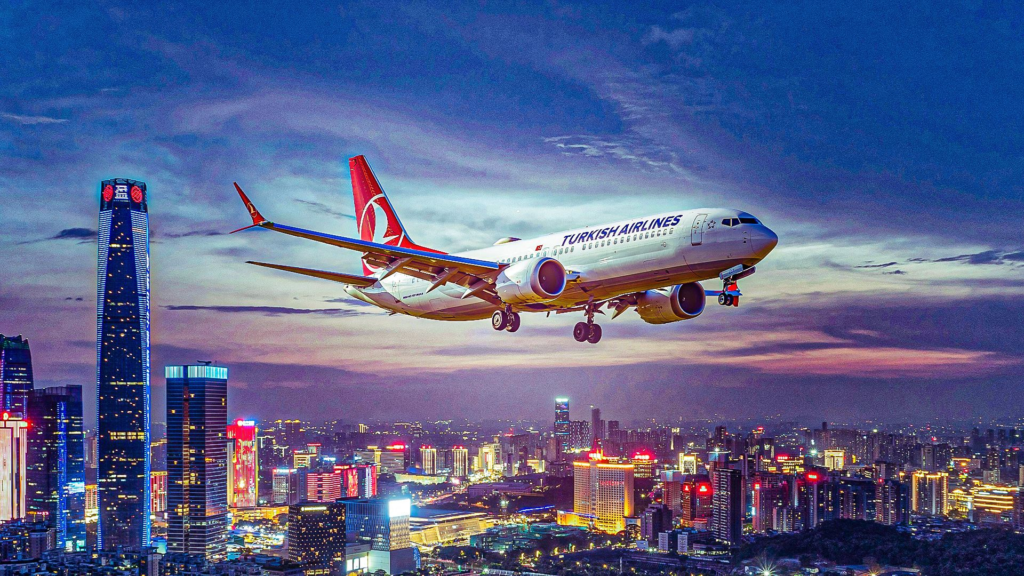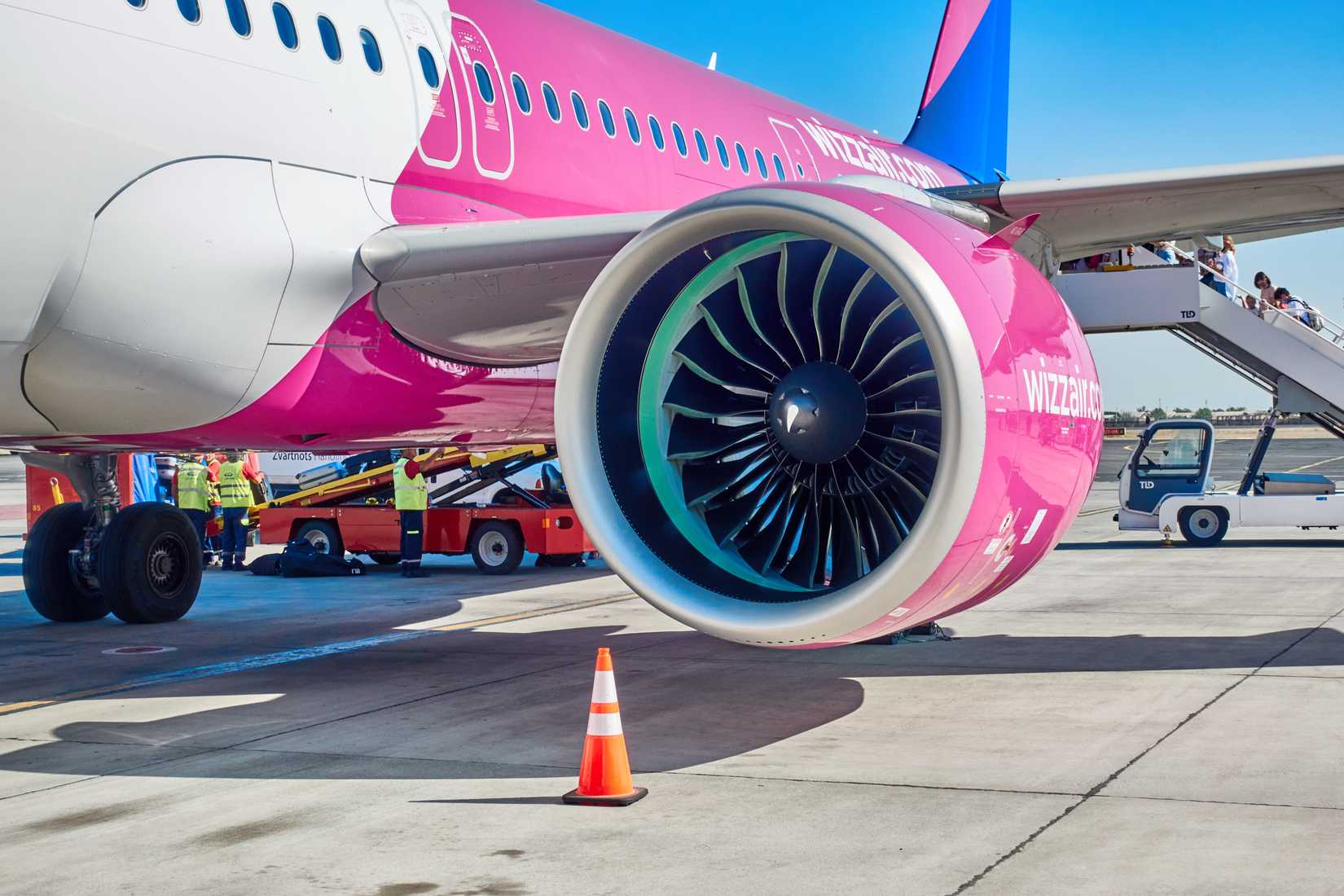Turkish Airlines could shift its intention to order 150 Boeing 737 MAX family aircraft to Airbus amid issues with engine supplier CFM International, according to a report by Reuters. CFM International, a joint venture between GE Aerospace and Safran, is the sole engine supplier for the Boeing 737 MAX family, offering the LEAP-1B engines.
Speaking with Reuters, the airline’s Chairman of the Board and Executive Committee, Ahmet Bolat, said that if the engine supplier does not agree to “feasible economic terms,” the Turkish flag carrier could instead sign with Airbus. The 737 MAX’s rival, Airbus A320neo family, offers two engine options, including CFM International’s LEAP-1A and Pratt & Whitney’s GTF engines. Simple Flying has asked Turkish Airlines, GE Aerospace, and Safran for comment.
Cost Dispute Could Threaten The Entire 737 MAX Deal
Airlines have been struggling to match rising passenger demand, which has rebounded since the pandemic, with the available aircraft supply. Engines play a particularly important role in this supply process. Ongoing engine shortages and maintenance delays are pushing up parts prices and creating tension between airlines and suppliers.
This is why the entire Boeing 737 MAX deal could potentially be switched to Airbus. According to the Reuters report, negotiations between Turkish Airlines and CFM International have been challenging due to the costs involved. CFM is the sole engine supplier for the Boeing 737 MAX. In a comment to Reuters, Bolat said:
“If CFM comes to feasible economical terms then we are going to sign with Boeing. If CFM continues its stance we’ll change to Airbus. With Airbus I have choices.”
Turkish Airlines’ Intent To Purchase 150 737 MAXs
Alongside the airline’s largest Boeing widebody order, Turkish Airlines expressed its intent in late September 2025 to purchase up to 150 Boeing 737 MAX aircraft. The carrier has long been a customer of Boeing’s best-selling 737 narrowbody family. According to ch-aviation fleet data, Turkish Airlines currently operates a total of 116 Boeing 737 family aircraft across four variants, including 69 737-800s, 15 737-900ERs, 27 737 MAX 8s, and five stretched 737 MAX 9 jets.
Instead of the Boeing 737 MAX, Turkish Airlines Chairman Ahmet Bolat said the airline could switch to Airbus jets. The airline has not specified which Airbus models it would choose, but it would likely select from the Airbus A320neo or A321neo, or perhaps a mix, given its already strong order book for A321neo jets. According to ch-aviation, ![]() Turkish Airlines is awaiting delivery of 210 A321neos and two A320neos. If the carrier were to switch to Airbus, its A320neo family order book would total 362 aircraft. Below is the breakdown of the fleet between Boeing 737 and Airbus A320 family aircraft.
Turkish Airlines is awaiting delivery of 210 A321neos and two A320neos. If the carrier were to switch to Airbus, its A320neo family order book would total 362 aircraft. Below is the breakdown of the fleet between Boeing 737 and Airbus A320 family aircraft.
|
Narrowbody Aircraft |
Number Of Units |
|---|---|
|
Airbus A319-100 |
6 |
|
Airbus A320-200 |
17 |
|
Airbus A320neo |
10 |
|
Airbus A321-200 |
68 |
|
Airbus A321neo |
68 |
|
Boeing 737-800 |
69 |
|
Boeing 737 MAX 8 |
27 |
|
Boeing 737-900ER |
15 |
|
Boeing 737 MAX 9 |
5 |
Regarding engines, Bolat noted that Airbus would give the airline a choice. However, the European manufacturer is currently facing challenges with its Pratt & Whitney GTF engines (PW1100). These engines have suffered from a manufacturing defect caused by contaminated powdered metal, leading to premature cracks and failures in high-pressure turbine and compressor components. This has forced widespread inspections and significant operational disruptions for GTF engine customers. Although Pratt & Whitney has improved quality control and design over the years, inspections, repairs, and strain on its maintenance network are expected to continue through 2026.
Aircraft Shortage Creates Opportunities For Engine Suppliers
Passenger demand is highly dynamic and can change rapidly. Since the COVID-19 pandemic, demand has been rising quickly. According to a report by the global consulting firm McKinsey, commercial air travel, measured in revenue passenger kilometers (RPKs), grew by 10.4% from 2023 to 2024 and is projected to increase at an annual rate of 4.2% through 2030.
Indeed, airlines have been struggling to match rising passenger demand, which has rebounded since the pandemic, with the available aircraft supply. However, according to McKinsey, aircraft shortages create opportunities for engine suppliers.
High demand benefits both new engines and aftermarket services. As planes stay in service longer, they need more engine maintenance, giving suppliers strong margins from spare parts sales. Even when production remained below pre-pandemic levels in 2024, top engine suppliers performed well, earning 18% EBITDA margins compared with 11% from 2017 to 2019.





